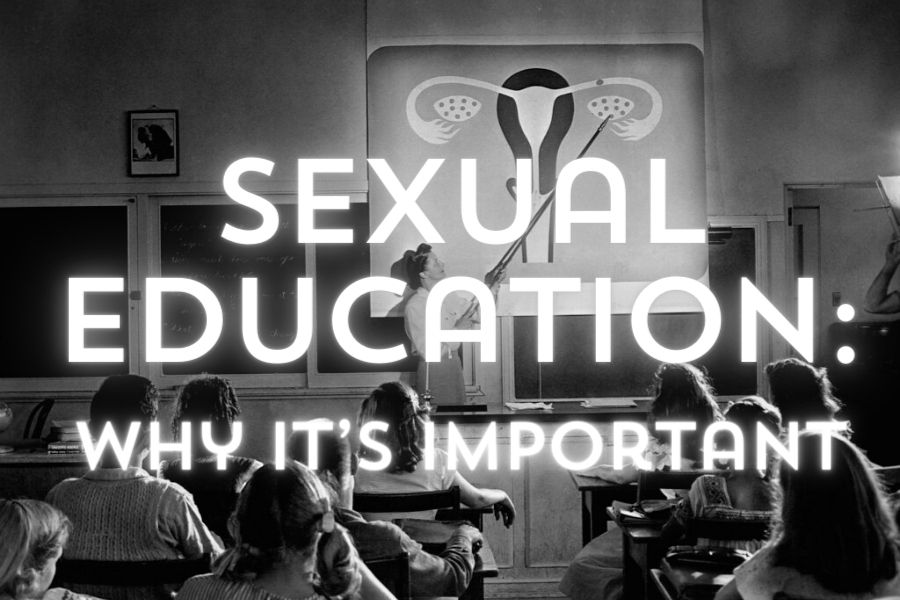Everybody knows the awkward, Can this just be over?? feeling of health class, but the information we learn is incredibly important. One thing that schools tend to skim right over without much depth is sex.
So, with this in mind, in the words of Salt-N-Pepa “Let’s talk about sex, baby.”
Sex is a controversial topic in schools. Does teaching about it promote sex or does it prevent it? Here’s the cold hard truth: teens are gonna have sex whether or not there is sex ed in schools. Learning about it shows the risk of unwanted pregnancy and sexually transmitted diseases. It also shows how big of a decision this can be. Teaching a subject like this in schools also teaches us about how the human body works. Not to mention other important things like the menstruation cycle. Information, such as what’s listed above should be taught, and not just from a heterosexual standpoint. However, it should be taught at an appropriate age. The more you know about the subject, the more informed and educated you are when you make that decision for yourself.
Not everyone gets “the talk” at home, and if they do, is that information always accurate? Sex education in schools provides factual information and a safe space for students to ask questions without judgment. According to the CDC, fewer than half of high schools in the U.S. teach all 20 topics recommended as essential components of sex education.
In a study by Guttmacher Institute, fewer than half of teens received the information taught in sex ed programs before becoming sexually active. More teens reported that they were taught more about how to say no to sex and the importance of waiting until marriage than where to get birth control or how to use a condom. In 1995, 81% of adolescent males and 87% of adolescent females reported that they had received instruction on birth control methods, while in 2015–2019, 63% of males and 64% of females reported receiving instruction on this topic.
At Sartell High School our program is primarily based around the general health of the body. The course touches on sexual health where students learn human biology of the reproductive system, options of contraception, conception, and sexually transmitted infections and diseases. However, since this is a class that focuses on health in general and not a human sexuality course, students learn about how to make smart choices in regards to sexual activity, along with how to make smart choices in other topics.
Karl Scharnweber, physical education and health teacher at Sartell High School addresses the subject in an interview:
What do you think is the most important thing students learn in this unit?
K: “It’s an abstinence based unit, or that’s our approach, so we stress the importance of that choice and that’s the most important thing that students learn…we try to cut through and clear up misconceptions.”
Do you think students learn enough on the subject?
K: “I think what we’ve got is a solid foundation for a tenth grader…is there more that they could learn about? Of course. More that they’re probably already learning about, talking about, being exposed to without any sort of guidance [on what is fake and what’s real]…this can be a very impactful choice, it’s a powerful choice and that’s how we always frame it. To make the decision to engage in sexual activity, there’s a lot of repercussions, and we talk about that.”
To view another professional’s opinion on the subject, I had the pleasure of interviewing Jillian Reber who teaches natural family planning at the Office of Marriage and Family in the Diocese of Saint Cloud. She also teaches 5th and 6th graders about puberty.
Do you think it’s appropriate to teach Sex Ed in schools?
J: I think Sex Ed should ideally come from within the family unit. However, I also realize many families don’t like to talk about the subject because it can be awkward. If taught in schools, it would seem the most important thing to teach would be abstinence until marriage, not just from a moral standpoint, but from a physical safety standpoint.
What age should people learn about sexual health?
J: I teach a very basic understanding of sexuality at the fifth and sixth grade levels in schools, but that is done with full permission and knowledge by the parents…that being said, a better age would be later in high school, provided basic knowledge and proper respect for sexuality and its consequences are known prior to that age. Sexuality is not something to be feared, but it does require a healthy respect, as it affects many other parts of the human person.
However awkward sex ed might be for students, the things taught in sex ed programs affect students in their lives. Despite this, it is a controversial subject within schools. There are many questions that educators have to face when it comes to sexual education. What age is appropriate to teach students? What can be taught? And quite possibly the most important question: what’s the outcome if we don’t teach it at all?






